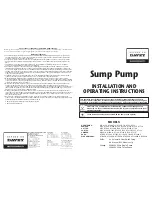
GETTING STARTED
1. Solder a high quality battery connector to the ESC (see
Driver’s Ed Guide
“Connectors and Power Wiring”).
2. Mount the ESC and motor into the vehicle.
3. Connect motor to the ESC (see
Driver’s Ed Guide, “Motor Wiring”).
4. Plug the RX wire and AUX wire in (see “
Receiver Connections” section on the
opposite side).
5. Calibrate your ESC to your radio. (See
Driver’s Ed Guide, “How to Calibrate the
ESC”).
YOU ARE NOW READY TO GO!
Revised 07/2017
Copyright 2017 © Castle Creations, Inc. P/N:095-0288-02
ABOUT THE MAMBA XL X
Mo
tor
s
Please note that while the Mamba XL X is capable of handling incredible
amounts of power, your motor must also be up to the task. Always run your
motor within the manufacturer’s specs. Monitor motor, battery, and controller
temps carefully and never let the motor get above 180º F . Excessive heat in
the motor can damage the motor, the Mamba XL X, and your batteries.
G
ea
ri
n
g Always start with stock gearing. If you wish to change the gearing, motor, or
battery, you must check your motor temperature frequently on the first run.
If the motor gets too hot, reduce the pinion size, increase the spur size, or
reduce the pack voltage.
P
ro
gr
am
m
in
g Mamba XL X is programmable via your transmitter, Windows® based PC and
a Castle Link USB adapter (available free with enclosed coupon), or a Field
Link card (purchased separately). You must disconnect the AUX WIRE prior to
connecting your ESC to the Castle Link USB adapter to avoid damage to the
USB adapter. See the Drivers’ Ed Guide for more instructions on transmitter
programming and the Castle Link system
(“Tuning with Castle Link”, and
“Transmitter Programming”).
D
at
a Lo
ggi
ng
The Mamba XL X features data logging. You will be able to measure and record
important power system information during your race, turn-by-turn. After
your run, you can download and analyze this log using Castle Link. You will be
able to inspect many parameters including battery voltage, motor RPM, ESC
temperature, and more. Additional information about using the data logging
features can be found in the Driver’s Ed Guide
(“Data Logging”).
Motor Wires
Fan Wire
Battery
Wires
Receiver
Wire
AUX Wire






















